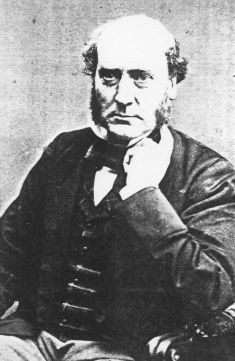
Sir George Gilbert Scott, largely known as Sir Gilbert Scott, was a prolific English Gothic Revival architect, chiefly associated with the design, building and renovation of churches and cathedrals, although he started his career as a leading designer of workhouses. Over 800 buildings were designed or altered by him.

Beat is the UK's leading charity supporting those affected by eating disorders and campaigning on their behalf. Founded in 1989 as the Eating Disorders Association, it celebrated its 30th anniversary in 2019.

Nesta is a British foundation, registered as a charity, which supports innovation.
The Community Security Trust (CST) is a British charity whose purpose is to provide safety, security, and advice to the Jewish community in the UK. It provides advice, training, representation and research.

Dogs Trust, known until 2003 as the National Canine Defence League, is a British animal welfare charity and humane society which specialises in the well-being of dogs. It is the largest dog welfare charity in the United Kingdom, caring for over 15,000 animals each year. Dogs Trust's primary objective is to protect all dogs in the UK and elsewhere from maltreatment, cruelty and suffering. It focuses on the rehabilitation and rehoming of dogs which have been either abandoned or given up by their owners through rehoming services.
The Longford Prize is an annual award presented in the United Kingdom to an organization, group, or individuals working in the field of social or penal reform. It was established in 2002 in honour of Lord Longford, a lifelong penal reform campaigner. It is sponsored by both The Independent and The Daily Telegraph, organised in association with the Prison Reform Trust, and is presented at the annual Longford Lecture.

Peter James Stanford is an English writer, editor, journalist and presenter, known for his biographies and writings on religion and ethics. His biography of Lord Longford was the basis for the 2006 BAFTA-winning film Longford starring Jim Broadbent in the title role. A former editor of the Catholic Herald newspaper, Stanford is also director of the Longford Trust for prison reform.

Prisoners Abroad is a UK-registered human rights and welfare charity which supports British citizens who are imprisoned overseas. It also works with ex-prisoners returning to the UK and family members and friends of those detained.
The Gender Trust was a United Kingdom charitable organisation promoting public education about transgender and gender identity issues and providing information to those affected. It is based in Horsham and Henfield, West Sussex. Gender Trust spokesmen comment on occasion to the news about transsexualism. For example, when the 2004 Big Brother winner was a transsexual, a GenderTrust spokesman said of the program: "It's raised the general public's awareness that transsexuals are just ordinary people." It has criticised employers for rarely thinking about the need for sex change or of the difficulty of sex change operations on their employees.

Guy Vaughan Black, Baron Black of Brentwood is Deputy Chairman of the Telegraph Media Group.
Catch22 is a social business, a not for profit business with a social mission which operates in the United Kingdom. Catch22 can trace its roots back 229 years, to the formation of The Philanthropic Society in 1788. Catch22 designs and delivers services that build resilience and aspiration in people and communities.
Rosemary Hill is an English writer and historian.
Revolving Doors is a charitable organisation in the United Kingdom which works across England and Wales. Through research, policy and campaigning work, the organisation aims to improve services for people with multiple needs who are in repeat contact with the criminal justice system.
Chance UK is a British charity that is based around early intervention in order to prevent crime and anti-social behaviour, providing mentors to children with behavioural difficulties. Based in London, England, it and has helped over 800 children since its 1995 founding. Chance UK is the only organisation in the UK to offer a year of weekly one-to-one mentoring with children aged between five and twelve.

Established in 1987 by British Quaker Alec Davison,[1] Leap Confronting Conflict is a UK-Based charity delivering training to young people aged 11–25, and the professionals working with them, to manage the conflict they experience in their lives and reduce violence in our communities.
Parents Against Child Exploitation (Pace) is a charitable organisation in England and Wales that works with parents of children who have been, or are at risk of being, sexually or criminally exploited. The charity was founded in 1996 as the Coalition for the Removal of Pimping (CROP) by Irene Ivison and other affected parents following the murder of Ivison's 17-year-old daughter Fiona in Doncaster.

Hope for Justice is a global non-profit organisation which aims to end human trafficking and modern slavery. It is active in the United Kingdom, United States, Cambodia, Norway, Australia, Ethiopia and Uganda and has its headquarters in Manchester, England.

The Forgiveness Project is a UK-based charity that uses real stories of victims and perpetrators of crime and violence to help people explore ideas around forgiveness and alternatives to revenge. With no political or religious affiliations, The Forgiveness Project's independent and inclusive approach ensures its core message – that everyone has the potential to change their perspective and break the cycle of vengeance – resonates across all cultures.

Pan is an intercultural arts organization and registered charity based in London, UK, that uses the arts to explore cultural diversity and social change. The main purpose of the organization is to help marginalised young people from all cultures and religions who are at risk of social exclusion to improve personal and interpersonal skills through a range of arts activities including drama, music, film, dance, creative writing and visual arts.
Inquest Charitable Trust is a charity concerned with state related deaths in England and Wales. It was founded in 1981. Inquest provides support on state-related deaths, including deaths in custody and their investigation, to bereaved people, lawyers, advice and support agencies, the media and parliamentarians. Their policy, parliamentary, campaigning and media work is grounded in the day-to-day experience of working with bereaved people.











